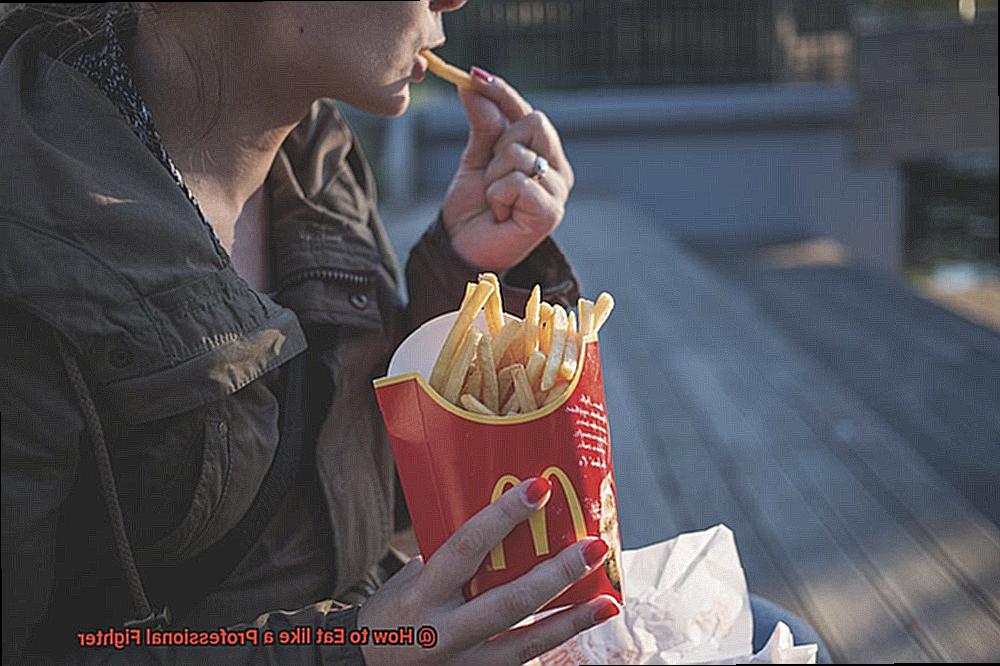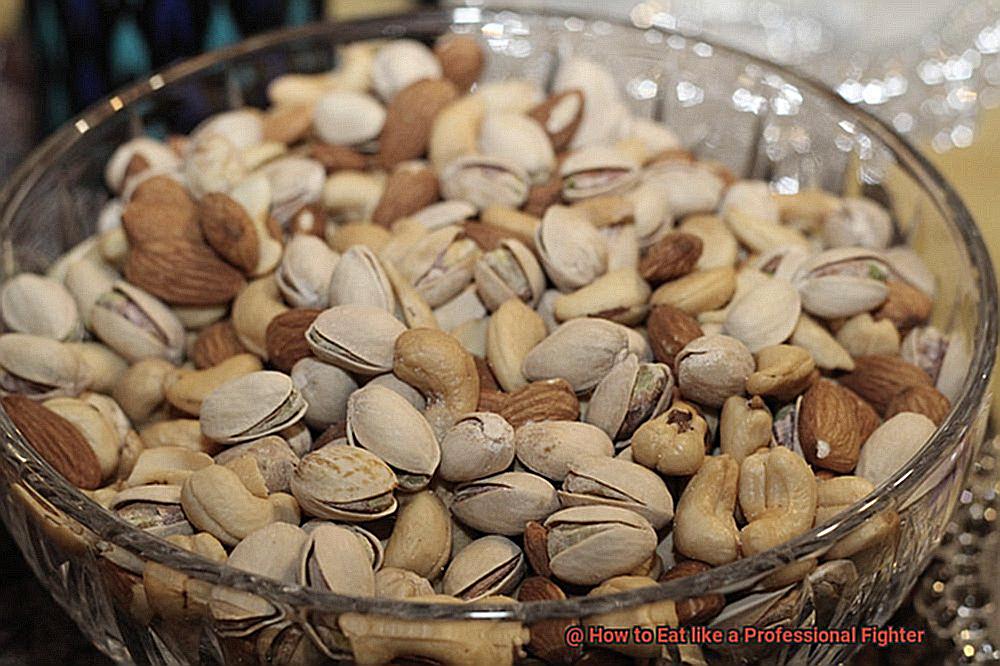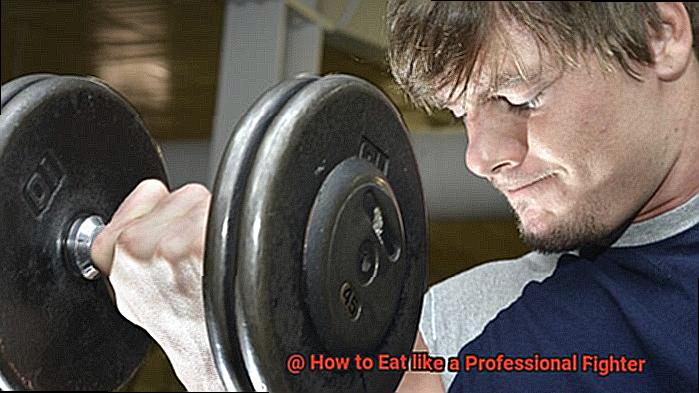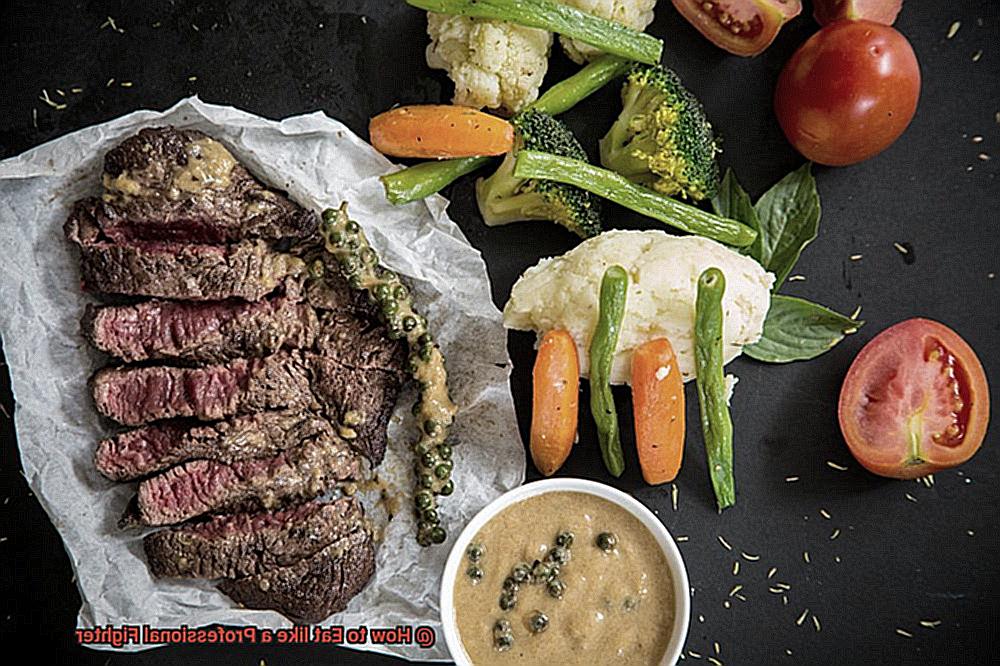Do you have what it takes to eat like a professional fighter? Whether you’re an aspiring athlete or simply looking to improve your overall health, fueling your body properly is key. Professional fighters understand that their success in the ring depends on what they put into their bodies outside of it. It’s all about discipline, balance, and understanding your body’s unique needs.
To perform at their best, fighters need to maintain high energy levels, build lean muscle mass, and keep their weight in check for competitions. This means eating a diet rich in high-quality proteins, carbohydrates, and healthy fats. But it’s not just about the macros – fighters also prioritize micronutrients like vitamins and minerals to ensure optimal bodily function.
In this blog post, we’ll explore how to eat like a professional fighter from start to finish. We’ll cover everything from the basics of macronutrients and micronutrients to specific foods and supplements that fighters swear by. Timing and portion control are also crucial components of a fighter’s diet – we’ll show you how to adjust your eating habits based on your training schedule.
Ready to fuel up like a pro? Let’s dive into the world of fighter nutrition and learn how you can eat like a champion.
The Basics of Eating Like a Professional Fighter
Professional fighters are renowned for their lean and toned physiques. To maintain such optimal physical condition, they follow a strict diet that provides the right balance of macronutrients. Carbohydrates provide energy for the body, protein helps repair and build muscle tissue, and fat is essential for hormone production and vitamin absorption.
To achieve this perfect mix, fighters consume lean protein sources like chicken, fish, and tofu. For carbohydrates, they opt for complex sources like brown rice, sweet potatoes, and whole-grain bread. Healthy fats come from nuts, avocado, and olive oil.
Portion control is another crucial aspect of eating like a professional fighter. They often eat smaller meals throughout the day to keep their metabolism and energy levels up. This way, they avoid overeating or feeling sluggish after meals.
Fighters also understand the importance of staying hydrated. They drink at least 8-10 glasses of water per day and stay away from sugary drinks. During training sessions or fights, they replenish electrolytes lost through sweat by using sports drinks.
Fruits and vegetables are an essential part of their diet as they are packed with vitamins, minerals, and antioxidants that help keep their bodies healthy and functioning optimally.
Eating like a professional fighter requires discipline, dedication, and attention to detail. By following these basic principles of consuming a balanced and nutritious diet with the right mix of macronutrients, staying hydrated, practicing portion control, and incorporating fruits and vegetables into their daily routine, fighters can maintain their physical condition and perform at their best level during fights.

Protein: An Essential Component of a Fighter’s Diet
As a professional fighter, your body undergoes intense workouts and fights that can damage your muscles. That’s where protein comes in. It helps repair and build those muscles back up, ensuring that you maintain your strength and mass.
The recommended daily intake of protein for a professional fighter is 1.5-2 grams per kilogram of body weight. So, if you weigh 70 kg, you should aim to consume between 105-140 grams of protein daily. But, it’s important to note that excessive protein intake can lead to kidney damage. That’s why it’s crucial to consult with a nutritionist or doctor before increasing protein consumption.
Luckily, there are plenty of sources of high-quality protein that fighters can incorporate into their diets. Lean meats such as chicken, turkey, and fish are great options, as well as plant-based options like tofu, tempeh, beans, and lentils. It’s essential to choose protein sources that are low in saturated fat and cholesterol.
Fighters often turn to protein shakes or supplements to make sure they’re meeting their daily protein goals. However, it’s crucial to choose high-quality supplements from reputable brands and avoid those with added sugars or artificial ingredients.

Aside from aiding muscle repair and growth, protein also helps keep fighters feeling full and satiated. This can assist in weight management for those competing in weight-class sports. Overall, incorporating adequate amounts of high-quality protein into a fighter’s diet is essential for optimal performance and recovery.
Eating like a professional fighter requires discipline and dedication, but the results speak for themselves. By focusing on the right balance of macronutrients, portion control, hydration, and incorporating fruits and vegetables into your daily routine, you can maintain optimal physical condition and perform at your best level during fights.
Carbohydrates: Fueling the Body for Training and Competition
As a professional fighter, you know that every ounce of energy counts when it comes to training and competition. That’s why carbohydrates are crucial for fueling your body and optimizing your performance. Carbohydrates are broken down into glucose, which is used by the body to produce ATP, the primary source of energy for muscle contractions. Without adequate carbohydrates, your muscles won’t have the energy they need to fight their best fight.
Choosing the right kind of carbohydrates is just as important as consuming them. Complex carbohydrates, like whole grains, fruits, and vegetables, are preferred over simple sugars because they provide sustained energy and help maintain stable blood sugar levels. Simple sugars can cause spikes in blood sugar levels followed by crashes, which can leave you feeling exhausted and unable to perform at your best.
Timing is everything when it comes to carbohydrate consumption. Before and after training or competition, consuming carbohydrates can provide energy for your workout and replenish glycogen stores afterward. During training or competition, consuming carbohydrates in the form of sports drinks or gels can help maintain energy levels and prevent fatigue.

So how much should you be consuming? As a professional fighter, aim for 3-5 grams of carbohydrates per pound of body weight daily. Focusing on complex carbohydrates and timing your consumption correctly will fuel your body with the right types and amounts of carbohydrates, optimizing your performance in the ring.
Healthy Fats: Keeping the Body Functioning Properly

As a professional fighter, you’re not just looking for any old fuel to keep your body going – you want to give yourself every possible advantage in the ring. And that’s where healthy fats come in.
It’s a common misconception that all fats are bad for you, but in fact, some types of fats are essential for optimal health and performance. Healthy fats can help boost brain function, support hormone production, and aid in nutrient absorption – all things that are crucial for fighters.
One type of healthy fat that should be on your radar is omega-3 fatty acids. You can find these in foods like fatty fish (think salmon, tuna, and sardines), chia seeds, flaxseeds, and walnuts. Omega-3s are essential fatty acids that play a key role in supporting brain health and reducing inflammation in the body – both of which can make a big difference when you’re trying to perform at your best.
Another type of healthy fat that fighters should make sure to get enough of is monounsaturated fats. These are found in foods like avocados, olive oil, and nuts. Monounsaturated fats have been linked to lower cholesterol levels and a reduced risk of heart disease – two things that are especially important for athletes who need to maintain their stamina over long periods of time.
Of course, it’s also important to remember that healthy fats should be consumed in moderation. Too much of anything can lead to weight gain and other health issues, so it’s important to aim for a balanced diet that includes a variety of healthy fats, protein, and carbohydrates.
Fruits and Vegetables: Adding Vital Nutrients to the Diet
As a professional fighter, you know that your body needs to be fueled with the right nutrients to perform at your best. And when it comes to optimal performance in the ring, adding fruits and vegetables to your diet is just as important as healthy fats.
Why? Well, these colorful foods are packed with vital nutrients like vitamins, minerals, fiber, and antioxidants that provide a wide range of health benefits. They reduce inflammation, boost the immune system, and improve cardiovascular health – all things that fighters need to succeed.
So, what are some of the best fruits and vegetables for fighters? Leafy greens like kale and spinach are loaded with iron, calcium, and vitamin K – all essential for healthy bones and muscle function. Berries like blueberries and strawberries are also excellent choices, containing antioxidants that reduce inflammation and improve recovery time. And let’s not forget about cruciferous veggies like broccoli and cauliflower – they’re high in vitamins C and K as well as fiber, which helps keep everything running smoothly.
To make sure you’re getting all the benefits of these nutritional powerhouses, aim to consume at least 5-7 servings per day. This can be easy to achieve by incorporating them into meals or snacks throughout the day. For example, adding spinach or kale to a smoothie or salad is an easy way to increase vegetable intake, while snacking on carrots or celery with hummus is a delicious and healthy option.
Planning Ahead: Ensuring Meals are Balanced and Nutritious
As a professional fighter, your body is your most valuable asset. To perform at your best, you need to fuel it with the right nutrients. However, eating healthy can be a challenge, especially when you have a tight training schedule. That’s why planning ahead is crucial for fighters who want to ensure that their meals are balanced and nutritious.

Planning your meals in advance gives you enough time to prepare healthy, balanced meals that meet your nutritional needs. This means that you won’t have to rely on unhealthy snacks or fast food when you’re in a hurry. By taking the time to plan ahead, you can ensure that every meal is packed with the nutrients your body needs to perform at its best.
Eating like a professional fighter involves planning your meals around your training schedule. Before training, it’s important to eat a meal that contains carbohydrates and protein at least two hours beforehand. This provides your body with the necessary fuel to perform at its best during training. After training, consuming a meal high in protein and low in fat helps with muscle recovery.
To ensure that meals are balanced, fighters should include a variety of foods from different food groups. Aim to eat a diet rich in fruits, vegetables, whole grains, lean protein sources such as chicken, fish, and legumes, and healthy fats such as nuts and seeds. Ensuring that you consume nutrient-dense foods from all food groups provides your body with the necessary vitamins and minerals it needs to function optimally.
Staying hydrated is also essential for fighters. Drinking plenty of water throughout the day helps prevent dehydration which can negatively impact your performance during training and competition.
eaSjxWld71U” >
Conclusion
In summary, eating like a professional fighter is no easy feat. It takes discipline, dedication, and a keen attention to detail. Fighters understand that their performance in the ring is directly linked to what they put into their bodies outside of it.
To achieve peak performance, fighters prioritize maintaining high energy levels, building lean muscle mass, and keeping their weight in check for competitions. This requires a diet rich in high-quality proteins, carbohydrates, healthy fats, fruits and vegetables, and plenty of hydration.
Macronutrients such as carbohydrates for energy production, protein for muscle repair and growth, and healthy fats for hormone production and vitamin absorption are key components of a fighter’s diet. Additionally, micronutrients like vitamins and minerals play an important role in ensuring optimal bodily function.
Timing and portion control are also crucial aspects of a fighter’s diet. They often opt for smaller meals throughout the day to keep their metabolism firing on all cylinders. Planning ahead is another essential tool in a fighter’s arsenal to ensure that meals are balanced and nutritious.
By following these basic principles of consuming a balanced and nutritious diet with the right mix of macronutrients, staying hydrated throughout the day, practicing portion control along with incorporating fruits and vegetables into daily routine can help one achieve optimal physical condition to perform at their best level during fights.
Remember that eating like a professional fighter isn’t just about achieving success within the ring – it’s about living an overall healthier lifestyle that benefits your body both inside and out. So why not give it a try?






